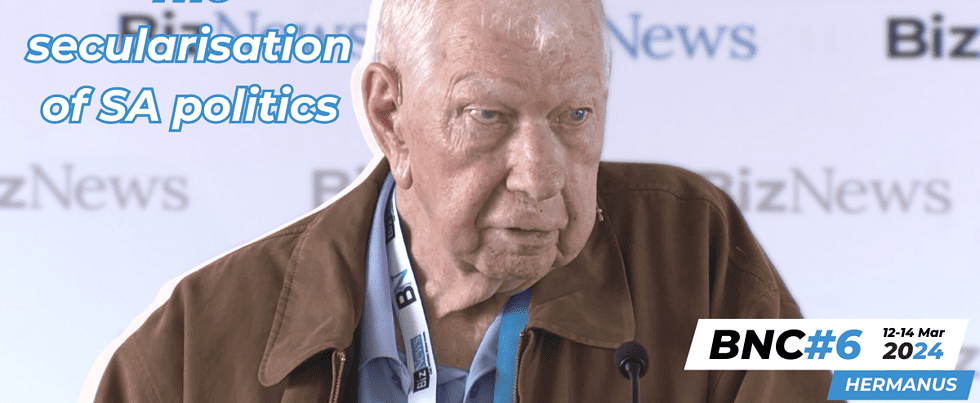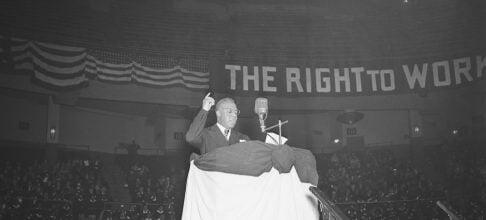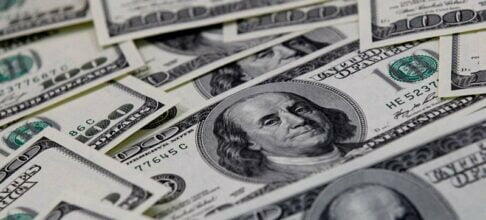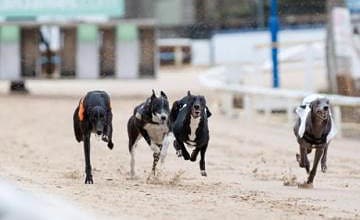Watch here
Listen here
An edited transcript of RW Johnson’s keynote address at BNC#6 in Hermanus ___STEADY_PAYWALL___ What I want to talk about is what I call the secularisation of South African politics. Which is a long-term process, [and] we’re only part of the way. First of all, what do I mean by secular politics? I really think of the definition given by the most famous American political scientist of the last century, Harold Laswell. And he said that fundamentally, politics were about who gets what, when and how. In other words, politics is an endless distributive struggle between different groups, all pursuing the maximum material and symbolic rewards for their group. Now that is indeed. And of course, that process tends to follow the business cycle. So that growth is obviously good for parties in power. Recessions are bad and so forth. That, of course, is part of all politics. For example, in the 50s when I first arrived in South Africa and Apartheid was at its height. When I look back at that period now, I think, why on Earth did people put up with this? It was so dreadful. And I think the reason is, frankly, that economic growth was very rapid. It was over 5% per annum. And everybody I mean, literally everybody was getting better off every year, even Africans were, because the number of jobs was increasing year after year after year, so that more and more could come to the cities and get work. And I think that was, as it were, the underlying secret of Apartheid in that period. Now, secular politics is what prevails in most countries, certainly countries which have any lengthy democratic history. But it’s not been the case in South Africa. Let me just give you the example. When I was young, I was a keen supporter of the Progressive Party, and we certainly then saw elections as morality contests. Apartheid was evil. We were fighting for non-racialism and against racial discrimination. But our fervour, which was largely a moral fervour, was at least matched by the Afrikaner nationalists. Their party was bound together not just by who gets what, but by a passionate commitment to their language, to their culture, to a common religion and a powerful and shared sense of history. It was perfectly normal to meet Afrikaner nationalists, who would quickly start telling you about how their grandmothers had been in concentration camp. There was a bitterness and other passion. It was a holy cause, and it was certainly not just about who gets what. There was a lot more going on. And that was clear from the way the National Party vote behaved. Normally, you would have expected the vote to oscillate in terms of the economic cycle, but it didn’t. Their peak performance in elections was in 1977, which is 29 years after they came to power, which is a remarkable fact. So it was no ordinary political party, and it certainly wasn’t just a secular one. But of course, there were other kinds of politics. So when I went to Britain again in 1964, I immediately found myself in the middle of the election in which Harold Wilson became prime minister. And I was amazed, as were other South Africans I knew, to find the election was dominated by Wilson’s promise to bring interest rates down to three and a half or even 3%. Now, none of us in South Africa had any idea what the interest rate was, and it certainly didn’t feature in elections. So we were completely puzzled by this very different style of politics. But it was, of course, about who gets what, when and how. The key thing being that British politics was class politics. And the great divide was between those who own their houses and those who were forced to rent usually council houses. And that was the great class divide. Now, every young couple wanted to buy a house. Whether or not they could depended on mortgage rates, which of course depended on interest rates in general. So what Harold Wilson was really doing, was he was promising young couples that if we get into power, you will be able to buy your own house. In other words, you will become part of a have part of the population. And that, of course, is very powerful stuff and certainly helped him win. But of course, we didn’t understand it because that was secular politics going on in the classic way and we’re from South Africa, where we simply weren’t used to that sort of thing. Now, non-secular politics tends to be about things like religious, ethnic or racial loyalties, moral passions, social solidarities, usually language or cultural cleavages. It doesn’t mean, of course, that the distributive politics doesn’t matter, but it’s an underlying thing. Now. What happens, of course, is that over time this non-secular politics gets routinised, and gradually loses its power. And secular politics tends to take over. And that’s certainly what happened with the Afrikaner nationalists. How does that process work? The key is the loss of unity. By 1966, the split between verligte and verkrampte was quite public, and thereafter Afrikaners could choose which faction they liked. By 1969, Hertzog had already formed the HNP. By ’73, Terre’Blanche had launched the AWB, and in 1983 Treurnicht led away the Conservative Party. So there were more and more varieties of Afrikaner nationalism to choose from. It was no longer this single powerful force. Secondly, there was a growth of corruption and scandal, which were particularly bad for a Calvinist party. Various MPs were caught stealing, the snitch got murdered, there was the information scandal and perhaps worst of all, Nico Diederichs, the state president who had a huge Swiss bank account having switched gold sales from London to Zurich. Once the president is a crook, then there’s not much that’s sacred. So the National Party coalition held together for a long time, but it became increasingly hollow. And you could tell that after 1990. First of all, the National Party itself fell to bits very very quickly and disappeared. Now, you wouldn’t have expected that. But also, frankly, the Dutch Reformed Church became a shadow of what it had been before. So these various elements of that coalition, which had been strong all together, quickly fell apart. And you could see it culturally. The very success of Afrikaner nationalism and the upward social mobility of produce meant more and more Afrikaans speakers spoke English. And old celebrations of things like the Great Trek and boeremusiek and volkspele all became suddenly very old fashioned in the age of television. So all of that gradually lost its power. Now, as we know in 1990-94, the whole political system begun all over again on a new basis and the electorate was greatly expanded, a new constitution and so on. Most dramatically, there was a new voting system based on proportional representation. The most extreme form of proportional representation I have ever seen anywhere in the world. Now, a system like that is like a bomb which will blow up any party system, for it will encourage the atomisation of politics, creating incentives for the creation of a large number of small parties, a Tower of Babel and kaleidoscopic coalitions. But that did not happen right away because once again, we had a hegemonic nationalist party that didn’t have many of the things that the National Party had had. It did not have a common language or a culture or a common religion or a common history. But there was an overall, though somewhat artificial, sense of racial unity. And it was for many a sacred call. Just as many nationalists during the Second World War had ended up in camps like Koffiefontein and suffered for their beliefs. So there were people who had fought for their whole lives in the struggle, some had endured beatings or even torture for the sake of their beliefs and their solidarity with their comrades. So it had a very strong non-secular appeal, quasi-religion. In the early days, everyone talked about them having the moral high ground and Mandela was magic. The Madiba Magic. Clearly, these sorts of non-secular factors were very powerful, and they defied the normal political rules because, despite the electoral system, each vote went up from election to election. It peaked in 2004. Very nearly 70%. Thus, defying the PR system’s power. But of course, the ANC has been experiencing secularisation as well. The term comes from the sociology of religion, because, churches have undergone something like this long before. Brian Wilson, who wrote A Religion in Secular Society, which is probably the most important study of this, charted the rise of secularisation. And I remember when that book came out, many critics said, what you say is true about the Anglicans and the Catholics and so on, they’re all losing ground, fewer and fewer people and so forth. But, you’re still wrong because look at the rise of all these Big Tent preachers, not only Billy Graham, but lots of other charismatics of one sort and another, and they’re all very much alive and growing. And I remember Brian Wilson just laughing and saying, don’t you see that the proliferation of those sects is part of secularisation? Because when religion really mattered back in medieval times and later. People died for it. They tortured people for it. They burned people at the stake for it. You could only have one religion. The very fact that now it’s all right to have lots of religions tells you how much ground they’ve lost. And the growth of all these little sects is part of that. Once you accept that the plurality of religions is normal, then a huge and irreversible step has been taken towards routinisation and secularisation. Instead of being the way, the truth and the light, a religion is now just another church. Now the same sort of process applies to the ANC. The ANC’s mystique depended not only on Mandela, but on the idea of the ANC as a huge and indivisible force which is not only strong but frightening. And clearly right away in the ’90s, people were often very scared of falling foul of the ANC. In particular, the press was very scared and deferential in it seldom criticised the ANC about anything. The first crack was the breakaway of the UDM, Bantu Holomisa. But the big shift came in the falling out of Mbeki and Zuma in 2005. Almost immediately there were two ANCs: The Mbeki ANC and the Zuma ANC. And the press was immediately free. If you go back and you look you’ll there’s absolutely a change in the press of that time, because suddenly they could criticise freely because now there were two ANCs and there was no united, powerful group to be frightened of. And real press freedom in this country begins at that moment. Now, we’ve also had since then, the same process of increasing variables. We’ve had COPE. We’ve had the EFF. The African Congress for Transformation. The African Transformation Movement. Black First Land First. MK in this election. And even Duduzane Zuma’s party called the Game Changers, though I haven’t noticed them changing the game yet. The key thing is that the mystique deriving from this mighty united movement is now gone because you’ve got so many possible variants. And it clearly won’t come back. Remember, the ANC never had a lot of the forces on its side that the Nats did. In effect, the struggle gave them this artificial racial unity which is now spent. And with Humpty Dumpty off the wall, there’s no way of putting him back together again. Now the results of this secularisation are visible in many ways. Perhaps most obviously in the open contempt for the ANC, expressed almost daily in many sections of the press. It’s perfectly obvious to ANC politicians that they are no longer popular or respected. The almost pathetic attempt by Ramaphosa and other ANC politicians to associate themselves with the triumph of the Springboks showed all too clearly how conscious they were of their popularity deficit. I should break in to say that I’m looking at the data for the election survey, which I put in the field a few weeks ago, which we’ll bring out this weekend. I did something similar in 2019, and it was clear on the data then that Ramaphosa was worth something like 11% extra to the ANC. There were that many voters who said that they were so put off by corruption that they were not going to vote ANC, but because of Ramaphosa, they would. Now that’s completely disappeared. It’s no longer there in the data at all. Indeed, I found that when you ask people, who are you favourable to and unfavourable to? Ramaphosa doesn’t even quite tie with Zuma. They are equally popular. That’s quite something when you think about the bad press that Zuma’s had in the past however many years. The fact is, very few African nationalist parties have had to live with a free press, and the ANC certainly didn’t have to do that before 1994. Moreover, the situation is bound to get worse for them, if you take the Deputy President Mashatile, who is clearly their future. He’s got no real national profile. He’s extremely unpopular – I can tell you that from the data. He played no part in the liberation struggle. He’s a purely provincial politician. And he’s already attracted a great deal of criticism for his lavish lifestyle because of the godfathers to whom he owes favours. Similarly, the ANC secretary general Fikile Mbalula attracts a great deal of ridicule and has already publicly boasted of lying to Parliament to protect Jacob Zuma. It’s extremely hard to see how the ANC can regain respect or popularity under leadership like that. Now, the secularisation of the political system is, of course, going on across the board. It doesn’t just affect the ANC. So you can see again for the DA, that they used to have that space to themselves, but now there’s ActionSA, the Freedom Front Plus, Rise Mzansi, Build One South Africa, GOOD, Patriotic Alliance and so on. No less than three of those parties are led by DA breakaways. So again, they too are fighting that sort of problem. And it’s very noticeable that when, John Steenhuisen was asked about these crossovers, people moving away from the DA to other parties, he dismissed it as part of the silly season, like the transfer window in soccer. That is to say, a routine and relatively unimportant phenomenon. Now, in the old days, when the Progs saw themselves as a moral cause, no Progressive Party leader would have said anything like that. If anyone left the party they were betraying this cause. But quite clearly for Mr Steenhuisen, politics no longer has moral conscience in that sense. The routinisation and secularisation are affecting them as well. It still has some way to go with this process, and of course, the ANC will work as hard as it can to try to keep the old forms of appeal going. But it’s very difficult. They will try to drive out the secular factors by appealing to the struggle, blaming everything on Apartheid and so forth. But it cannot really work, for various reasons. First of all, if the Mandela family are selling off his effects, even his ID, then not much is sacred anymore, is it? It’s pretty clear. Jacob Zuma used to be so confident of the ANC’s enduring emotional appeal that he said the ANC was in power until Jesus come. He obviously doesn’t believe that anymore, because founding a rival party to take on the ANC is based on the opposite assumption. But there’s something else about this, too, which I should make clear. Which is that if you are trying to drown out secular factors by appealing to those things, it doesn’t really work. The key factors – and this is no secret – are jobs, electricity, water cut-offs, social grants etc.. These things, you can’t really get over failures by just blaming everything on Apartheid. And it’s for two reasons, really. One is that every time a building catches fire and you jump up and say it’s the fault of Apartheid, then you are always trying to explain away a failure. And the voters notice the failure. You can’t really be surprised by that. What it rather reminds me of is, that after the Second World War, journalists went and interviewed a number of Japanese and asked how did you know what was going on? Because the media in Japan was completely controlled and so forth. And I remember they interviewed this old Japanese peasant and he said, “That’s true. All they ever talked about was how we had won these wonderful, glorious victories from Pearl Harbour on. But you couldn’t help noticing,” he said, “that each victory was getting closer to Japan.”. That’s what I mean. You can’t really hide the failures. The more that you try to do it that way, people will spot the failure. And that, of course, is what’s been going on. Now, of course, secularisation is always more pronounced in both religious terms and political terms in urban environments, for obvious reasons. So of course, the election is largely this time about the fight for the three metropolitans in the most urbanised provinces: Gauteng, Western Cape and KZN. And of course, as the ANC falls back on the rural areas, it is increasingly a homeland party and it’s increasingly dependent on a very strange inversion, which I saw in Zimbabwe. What happened in Zimbabwe is that Zanu PF would turn around and bully the voters by intimidation, torture, even killing and so forth. In order to more or less force them to support Zanu PF. So instead of a party courting the favours of the voters, the party turns around and bullies them. Now, something similar is beginning to happen here because the ANC is in fact increasingly dependent on basically threatening people that if you don’t vote for us, you won’t get your social grant. And secondly in the countryside, on the land of the chiefs, who make it clear that if you don’t vote for the ANC, then there’s trouble coming your way. So again, this sort of bullying force is now becoming common in the ANC’s appeal. But it will only work in a rural environment. I don’t think you can make it work in an urban environment. So it’s not going to help too much. Notice also that when Mbalula was shocked by Zuma defecting, he said, “But we lied for you. We said the swimming pool was a fire pool.” Again, notice what that means. It means now that the meaning of solidarity is covering up somebody else’s corruption. But that’s not what it was all about before. What I’m really trying to say is that we are involved in this process of secularisation. It’s affecting all parties. And it will mean that the power of the electoral system to fragment the politics of this country won’t be counterbalanced by non-secular factors anymore. So it will happen more and more. And that’s actually one of my worries about the election. You’re going to get more and more small parties, not always competing, quite often just wanting to be bought off if they play that game. And I don’t think that this process can be stopped. And it will have benefits in some ways, but not in all.
Read also:
- “Vote like your life depends on it” to avoid “ANC, EFF, MK Doomsday Coalition”: Steenhuisen at BNC#6
- BNC#6: Steenhuisen – Election’24 SA’s chance to break 30-year political deadlock
- MK-EFF “reverse take-over” of the ANC possible…
Visited 1,297 times, 1,297 visit(s) today















